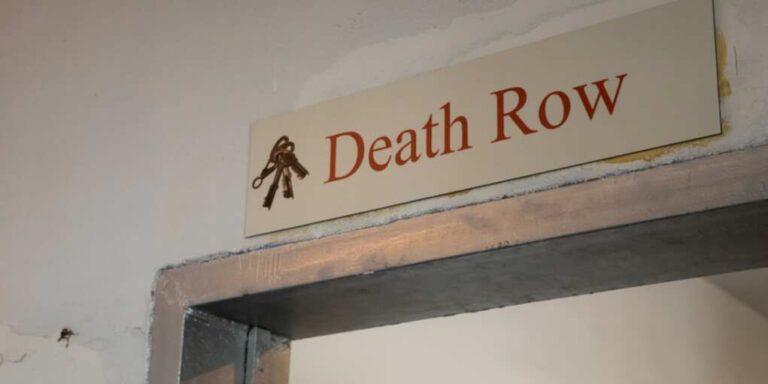
As the Palmetto State gears up for its first execution in over thirteen years, controversy swirls surrounding the various methods approved for carrying out capital punishment. Corrections Director Bryan Stirling submitted a sworn affidavit this week asserting that each of the three sanctioned approaches – lethal injection, electrocution, and firing squad – remains viable options for inmate Freddie Owens’ September 20th execution.
At issue lies whether the condemned man’s transfer of Power Of Attorney (POA) to counsel Emily Paavola allows her to choose the means of his demise, potentially circumventing the spirit of the statute requiring inmates themselves select their preferred manner of execution within prescribed timelines. Questions abound regarding both parties’ understanding vis-a-vis revocability should Owens rescind POA post-haste.
Freddie Owens, whose given surname appears now as Khalil Divine Black Sun Allah subsequent to an in-prison moniker change, faces mortal justice following conviction in connection with 1997 slaying of Irene Graves during a robbery spree through multiple Greenville establishments. His erstwhile accomplices turned government witnesses implicated Owens directly in the fatal shooting when security cameras faltered to capture clear footage.
Meanwhile, fresh concerns arise due to lapses plaguing previous administration(s). Notably absent among existing supplies stood critical components necessary to conduct humane lethally administered dosages prior; henceforth prompting adoption of novel legislative measures effectively shielding vendor identities behind these vital goods.
On technical merits alone, lab tests conducted last May confirmed purity & potency benchmarks set forth by analogous executing states utilizing comparable protocols. Pentobarbitol-based compounds form the backbone this revised approach. Further bolstered via routine testing of antiquated electrocution equipment just shy of century-old mark—last serviced merely eight weeks past—and well-trained volunteer marksman cohorts poised for potential activation should need dictate otherwise, assurances issued suggest preparedness writ large across modalities.
While Governor Henry McMaster emphasized deference towards juries’ deliberations alongside respect accorded institutional determinants throughout our criminal process, thus far declining pre-emptive commentaries relative specific considerations weighing upon Owens’ pending fate, prospects dimly hint toward reprieve amid historically unbroken precedents governing gubernatorial interventionism.
“[I committed the [jailhouse] murder],” confessed Owens himself once candidly recounting graphic particulars concerning incarcerated peer Christopher Lee’s grisly end,“…because I was wrongly convicted of murder.” Conversely speaking yesterday afternoon amidst queries posed respecting prospective executive mercy interventions, McMaster intoned solemnly:
“When the rule of law has been followed, there really is only one answer.”
Whether such steadfast commitment yields any tangible impact come September twentieth looms uncertain presently, although palpable anticipation pervades Columbia airwaves anticipating resolution soon forthcoming. As we move forward collectively grappling myriad complexities embedded inside America’s oft-contentious capital sentencing paradigm, might clarity yet emerge illuminating paths ahead? Only days shall tell.

